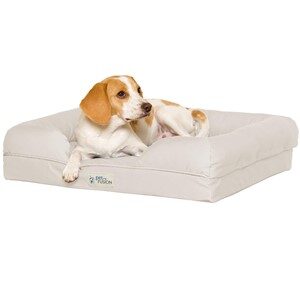Dog Beds For Pomeranians
Orthopedic Beds Make Pomeranians Comfortable!
Introduction
Dog beds for Pomeranians considers their health, sleeping style and preferences. An Orthopedic dog bed is best for dogs with joint pain and aching muscles. Because of health issues, an orthopedic bed provides the best comfort for Pomeranians experiencing arthritis, aching joints and muscles.
When welcoming a Pomeranian into your life, it’s essential to understand their unique needs to ensure they thrive in your care. This small, spirited breed is known for its luxurious coat, lively personality, and unwavering loyalty.
However, beneath their fluffy exterior lies a dog that requires specific attention to their health, behavior, and overall well-being. We’ll also explore safe and unsafe foods, providing vital information to help you make informed dietary choices for your furry friend. Whether you’re preparing for the arrival of a new Pomeranian or looking to enhance the care of your current companion, this article will serve as a comprehensive resource.
By understanding the unique characteristics and needs of Pomeranians, you’ll be well-equipped to provide the love, care, and environment that will keep your Pomeranian happy and healthy for years to come.
In this article, we’ll cover everything new and potential Pomeranian owners need to know, from the most common health issues and behavior concerns to the best dog beds tailored for this breed.
Best Dog Beds for Pomeranians
Recommended Dog Bed Types for Pomeranians:
- Orthopedic Dog Beds:
- Ideal For: Older Pomeranians or those with joint issues. These beds provide extra support and cushioning for their bones and joints.
- Features: Memory foam, firm support, and often water-resistant covers.
- Cave or Burrow Dog Beds:
- Ideal For: Pomeranians who like to nest or feel secure. These beds have a covered design that mimics a den, offering comfort and warmth.
- Features: Soft, plush lining, and a cozy, enclosed space.
- Donut or Bolster Beds:
- Ideal For: Pomeranians who like to curl up when they sleep. These beds have raised edges that provide a sense of security and support for their heads.
- Features: Soft, cushioned bolsters, and a plush sleeping surface.
- Cooling Dog Beds:
- Ideal For: Pomeranians who live in warmer climates or tend to overheat easily. These beds help regulate body temperature.
- Features: Gel-infused foam or breathable fabric that promotes airflow.
- Travel Beds:
- Ideal For: Owners who frequently travel with their Pomeranian. These beds are portable and lightweight, providing comfort on the go.
- Features: Foldable, easy-to-carry designs, and durable materials.
- Heated Dog Beds:
- Ideal For: Pomeranians who live in colder climates or older dogs with arthritis. These beds provide warmth and comfort.
- Features: Electric heating elements or self-warming materials.
Best Dog Bed Brands to Recommend:
-
PetFusion:
- Recommended Beds: PetFusion Ultimate Dog Bed.
- Why: Known for its high-quality memory foam beds that provide excellent support, especially for small breeds like Pomeranians. The beds come with a water-resistant liner and a durable, removable cover.
- Furhaven:
- Recommended Beds: Furhaven Orthopedic Sofa Bed.
- Why: Offers a range of orthopedic beds with bolstered edges, ideal for Pomeranians who like to curl up. The beds come in various sizes and styles, providing comfort and support.
- Best Friends by Sheri:
- Recommended Beds: Best Friends by Sheri OrthoComfort Deep Dish Cuddler.
- Why: Famous for their cozy, donut-shaped beds that are perfect for small dogs who love to nest. The beds are made with soft, plush materials and are machine washable.
- K&H Pet Products:
- Recommended Beds: K&H Pet Products Self-Warming Lounge Sleeper.
- Why: Offers both heated and self-warming beds that are great for Pomeranians in cooler climates. The beds are designed with safety in mind and have removable covers for easy cleaning.
- MidWest Homes for Pets:
- Recommended Beds: MidWest QuietTime Pet Bed.
- Why: Provides affordable, comfortable, and durable pet beds. These beds are ideal for crates and travel, with soft, plush fabrics that keep your Pomeranian comfortable.
- BarksBar:
- Recommended Beds: BarksBar Orthopedic Dog Bed.
- Why: Known for their orthopedic beds that offer high-quality memory foam and bolstered edges. These beds are designed to support small breeds and provide a comfortable resting space.
- The Dog’s Bed:
- Recommended Beds: The Dog’s Bed Orthopedic Memory Foam Bed.
- Why: Specializes in orthopedic beds with premium memory foam, ideal for Pomeranians with joint issues or those who prefer extra support. The beds come with removable, washable covers.
- Blueberry Pet:
- Recommended Beds: Blueberry Pet Heavy Duty Dog Bed.
- Why: Offers stylish and durable beds that come in various colors and patterns. These beds are made with high-quality materials and are easy to clean.
Tips for Choosing the Right Bed:
- Size: Choose a bed size that allows your Pomeranian to stretch out comfortably but isn’t too large.
- Material: Opt for beds with durable, easy-to-clean materials. Consider whether your dog has any allergies or sensitivities to certain fabrics.
- Support: If your Pomeranian is older or has joint issues, prioritize beds with orthopedic support.
- Sleeping Style: Consider how your Pomeranian likes to sleep (curled up, sprawled out, etc.) when selecting a bed type.
- CertiPUR-US Seal: When purchasing an orthopedic dog bed be sure to look for the CertiPUR-US seal. The seal means that the materials used in the bed do not contain any chemicals or toxins that are harmful to pets and humans.
These dog bed options and brands will help ensure that new Pomeranian owners provide their pets with a comfortable and supportive place to rest.
Facts about Pomeranians
Measurements
Both Male & Female Dogs:
- Height: 7 – 12 inches
- Weight: 4 – 7 lbs.
- Length: 9 – 11 inches
- Lifespan: 12 – 16 Years
- Fully Grown: 7 – 10 Months
- Colors: Orange, Black, White, Cream, Blue, Chocolate, Red, Tri-Color, Merle, Brindle, Sable, and Beaver.
- Popularity: This is the 24th most popular dog breed in the United States according to the American Kennel Club.
Pomeranian Facts
- Royal Influence: Pomeranians became widely popular thanks to Queen Victoria, who fell in love with the breed during a visit to Italy in the 19th century. She even bred them, contributing to their smaller size.
- Small Yet Mighty: Despite their small size, typically weighing between 3 to 7 pounds, Pomeranians have a bold, confident personality often described as “big dog in a small body.”
- Origin: Pomeranians originated from the Pomerania region in Northern Europe (now part of Poland and Germany). They are descended from large sled dogs.
- Diverse Coat Colors: Pomeranians come in a wide range of coat colors, including orange, black, white, blue, red, and even multi-colored patterns. The variety in their appearance is one of the breed’s unique traits.
- Fluffy Double Coat: Pomeranians have a luxurious double coat that requires regular grooming. Their fluffy outer coat is one of their most distinctive features, making them look like little puffballs.
- Long Lifespan: Pomeranians are known for their longevity, with a typical lifespan of 12 to 16 years, making them a long-term companion.
- Intelligent and Trainable: These dogs are highly intelligent and can learn new commands quickly. However, their independent streak means they may also be a bit stubborn, so consistent training is key.
- Vocal Nature: Pomeranians are known for being vocal. They have a distinctive, sharp bark that they are not shy about using, making them excellent watchdogs.
- Energetic and Playful: Pomeranians may be small, but they are full of energy. They love to play and are always up for a game or a walk, despite their petite stature.
- Health Considerations: While generally healthy, Pomeranians can be prone to dental issues, patellar luxation, and tracheal collapse. Regular veterinary care is important to keep them healthy.
- Celebrity Pets: Pomeranians are popular among celebrities. Famous Pomeranian owners include Paris Hilton, Nicole Richie, and Eva Longoria, highlighting their status as fashionable companion dogs.
Pomeranian Fun Facts
- Miniature Descendants: Pomeranians are the descendants of large sled-pulling dogs from the Arctic, but selective breeding over the centuries has made them much smaller.
- Royal Favorite: Queen Victoria owned a Pomeranian named Marco, who was only 12 pounds. Her love for the breed helped popularize them in England and contributed to the trend of breeding smaller Pomeranians.
- Famous Internet Star: Boo, a Pomeranian, became an internet sensation and was dubbed the “World’s Cutest Dog.” Boo’s fluffy, teddy bear-like appearance captivated millions of fans worldwide.
- Big Dog Personality: Despite their small size, Pomeranians are often described as having a “big dog” attitude. They are fearless, bold, and often think they are much larger than they really are.
- Barking Champions: Pomeranians are known for their loud and frequent barking. They are very alert and make excellent watchdogs, always ready to alert their owners of any unusual activity.
- Fluffy Fashionistas: Pomeranians have a luxurious double coat that comes in a variety of colors and patterns. Their thick fur makes them look like little fluffy balls, and they require regular grooming to maintain their fabulous appearance.
- Circus Performers: Thanks to their intelligence and eagerness to please, Pomeranians have often been used as circus dogs, performing tricks and routines to entertain audiences.
- Survivor of the Titanic: Two Pomeranians were among the dogs who survived the sinking of the Titanic in 1912. They were owned by wealthy passengers and managed to escape on lifeboats.
- Hollywood Stars: Pomeranians have appeared in various films and TV shows, often cast because of their cute and charismatic appearance.
- High-Energy Dogs: Don’t let their small size fool you—Pomeranians are full of energy and love to play. They are always up for a game or a short walk and can be quite active indoors.
- Bold Personalities: Despite their small size, Pomeranians have a big-dog attitude. They are often fearless and may not hesitate to challenge dogs much larger than themselves.
- Vocal Breed: Pomeranians are known to be vocal and often have a distinctive “yappy” bark, which makes them good alert dogs but can sometimes be a challenge for those living in close quarters.
- Celebrity Companions: Pomeranians are popular among celebrities. Famous Pomeranian owners include Paris Hilton, Nicole Richie, and Kelly Osbourne.
These facts highlight the unique characteristics and charm that make Pomeranians a beloved breed worldwide!
Video: Things You Must Not Do with Pomeranians
Below is an excellent video for things that new dog owners must not do with a Pomeranian.
Health Concerns
- Dental Problems:
- Issue: Pomeranians are prone to dental diseases like periodontal disease due to their small mouths and crowded teeth.
- Prevention: Regular dental care, including brushing their teeth and providing dental chews, can help prevent these issues.
- Luxating Patella:
- Issue: This condition involves the kneecap dislocating from its normal position, which can cause lameness or discomfort.
- Prevention/Treatment: Maintaining a healthy weight can reduce the risk. In severe cases, surgery may be required.
- Tracheal Collapse:
- Issue: This condition affects the windpipe, causing it to collapse and leading to breathing difficulties and coughing.
- Prevention/Treatment: Using a harness instead of a collar, avoiding excessive pulling on the leash, and managing the dog’s weight can help reduce the risk.
- Hypothyroidism:
- Issue: An underactive thyroid can lead to weight gain, lethargy, and skin problems.
- Treatment: This condition is usually managed with medication and regular monitoring.
- Alopecia X (Black Skin Disease):
- Issue: This is a genetic condition causing hair loss and darkening of the skin, primarily affecting male Pomeranians.
- Treatment: While there’s no definitive cure, treatments may include hormone therapy, special shampoos, or supplements.
- Eye Problems:
- Issue: Pomeranians can be prone to cataracts, tear duct issues, and progressive retinal atrophy (PRA).
- Prevention/Treatment: Regular eye check-ups and early intervention can help manage these conditions.
Common Behavior Issues
- Separation Anxiety:
- Concern: Pomeranians often form strong bonds with their owners and can suffer from separation anxiety when left alone, leading to destructive behavior or excessive barking.
- Management: Gradually acclimating them to being alone, providing toys, and creating a comforting environment can help ease anxiety.
- Excessive Barking:
- Concern: Pomeranians are known to be vocal, often barking at anything that catches their attention.
- Management: Training them to understand when barking is appropriate, using positive reinforcement techniques, and ensuring they get enough mental stimulation can reduce excessive barking.
- Dominance:
- Concern: Despite their small size, Pomeranians can be assertive and may try to dominate other pets or even their owners if not properly trained.
- Management: Establishing clear boundaries and consistent training from a young age can help manage dominant behavior.
- Aggression Toward Other Dogs:
- Concern: Pomeranians can sometimes exhibit aggressive behavior toward other dogs, especially if they feel threatened or if the other dog is much larger.
- Management: Socialization from an early age and positive reinforcement can help mitigate aggressive tendencies.
- Resource Guarding:
- Concern: Some Pomeranians may exhibit resource guarding, becoming possessive over toys, food, or even their owner’s attention.
- Management: Training them to share and using techniques like trading up (offering a higher-value item in exchange for the guarded item) can help reduce this behavior.
Understanding these common health issues and behavior concerns can help in providing the best care for a Pomeranian, ensuring they live a happy and healthy life.
Caring for Your Pomeranian
Caring for a Pomeranian requires attention to their unique needs, given their small size and distinct personality. Here’s a guide for new Pomeranian owners:
- Diet and Nutrition:
- High-Quality Food: Feed your Pomeranian a balanced, high-quality dog food formulated for small breeds. Their small stomachs mean they need nutrient-dense food.
- Portion Control: Be mindful of portion sizes. Pomeranians can easily become overweight, so monitor their food intake and avoid overfeeding.
- Frequent Meals: Due to their small size, they may benefit from eating smaller, more frequent meals throughout the day to maintain their energy levels.
- Grooming Needs:
- Regular Brushing: Their thick double coat needs regular brushing, ideally 3-4 times a week, to prevent matting and tangles. A slicker brush or a pin brush works well.
- Bathing: Bathe your Pomeranian every 3-4 weeks, depending on how dirty they get. Use a dog-specific shampoo that’s gentle on their skin.
- Dental Care: Pomeranians are prone to dental issues, so brush their teeth several times a week. Provide dental chews and consider professional cleanings as recommended by your vet.
- Exercise and Play:
- Daily Exercise: Pomeranians are energetic and need daily exercise, such as short walks or playtime. They enjoy indoor play but also benefit from exploring outside.
- Mental Stimulation: Engage your Pomeranian with interactive toys and puzzle feeders to keep their intelligent minds occupied.
- Training and Socialization:
- Early Socialization: Introduce your Pomeranian to different people, pets, and environments early on to help them become well-adjusted adults.
- Positive Reinforcement: Use positive reinforcement techniques for training. They respond well to praise, treats, and consistency.
- House Training: Pomeranians can be a bit stubborn with house training, so patience and consistency are key. Crate training can also be beneficial.
- Health Care:
- Regular Vet Visits: Schedule regular veterinary check-ups to monitor their health and stay on top of vaccinations, parasite prevention, and dental care.
- Watch for Common Issues: Be aware of common Pomeranian health issues like dental disease, patellar luxation, and tracheal collapse. Early detection is crucial.
- Safety Considerations:
- Supervision: Due to their small size, Pomeranians are at risk of injury from falls or being stepped on. Supervise interactions with larger dogs and young children.
- Leash Training: Always use a harness instead of a collar when walking your Pomeranian to avoid putting pressure on their delicate trachea.
- Comfort and Living Environment:
- Comfortable Bedding: Provide a soft, warm bed where your Pomeranian can rest. They enjoy comfort and may even appreciate a blanket or small pillow.
- Climate Sensitivity: Pomeranians can be sensitive to extreme temperatures, especially the cold. In colder weather, consider a sweater or coat to keep them warm.
- Bonding Time:
- Quality Time: Spend time bonding with your Pomeranian through play, grooming, and cuddling. They thrive on attention and being close to their owners.
- Separation Anxiety:
- Pomeranians can develop separation anxiety if left alone for long periods. Gradually train them to be comfortable alone and provide toys or a safe space to ease anxiety.
- Emergency Preparedness:
- Have an emergency kit ready that includes their medical records, a few days’ worth of food, water, and any medications they may need.
By following these guidelines, new Pomeranian owners can ensure their furry friend stays healthy, happy, and well-adjusted.
Costs of Ownership
Below are some of the potential costs that new Pomeranian owners can expect. Knowing this information ahead of time will help plan your budget accordingly.
Initial Costs:
- Purchase Price or Adoption Fee:
- Purchase from Breeder: $800 to $5,000, depending on the breeder’s reputation, the Pomeranian’s pedigree, and location. Show-quality Pomeranians may be more expensive.
- Adoption: $100 to $500 from a shelter or rescue organization.
- Initial Veterinary Costs:
- First Vet Visit: $100 to $300 for a general health check-up, vaccinations, deworming, and microchipping.
- Spaying/Neutering: $200 to $500, depending on the location and veterinary clinic.
- Supplies:
- Crate/Bed: $30 to $100.
- Collar and Leash: $15 to $50.
- Food and Water Bowls: $10 to $30.
- Grooming Tools: $20 to $100 (brushes, combs, nail clippers, etc.).
- Toys: $20 to $50.
- Training Pads/Housebreaking Supplies: $15 to $30.
- Training Costs:
- Puppy Training Classes: $100 to $300 for a group class, depending on location and trainer.
- Private Training: $50 to $100 per session.
Ongoing Costs:
- Food:
- Dog Food: $20 to $50 per month, depending on the brand and quality of food.
- Veterinary Care:
- Annual Check-Ups: $100 to $300 per year.
- Vaccinations: $75 to $150 annually.
- Flea/Tick/Heartworm Prevention: $100 to $200 per year.
- Grooming:
- Professional Grooming: $40 to $100 per session, with grooming needed every 4 to 8 weeks.
- DIY Grooming: If done at home, costs include shampoo, conditioner, and grooming tools, which can total $10 to $30 per month.
- Pet Insurance:
- Monthly Premiums: $20 to $50, depending on the plan and coverage.
- Miscellaneous Costs:
- Replacement Toys/Supplies: $50 to $100 per year.
- Dental Care: $100 to $300 per year, including dental chews, professional cleanings, and dental hygiene products.
Total First-Year Cost Estimate:
- Low-End Estimate: $1,500 to $2,500.
- High-End Estimate: $4,000 to $7,000.
Total Annual Cost After the First Year:
- Low-End Estimate: $500 to $1,500.
- High-End Estimate: $2,000 to $3,000.
These costs can vary depending on your location, the specific needs of your Pomeranian, and your personal choices regarding food, grooming, and veterinary care. It’s essential to plan for both expected and unexpected expenses to ensure your Pomeranian has the best care possible.
Tips for New Dog Owners
The tips below will help new dog owners to know what is expected of them if they want to own a Pomeranian.
- Grooming is Essential:
- Pomeranians have a thick double coat that requires regular grooming to prevent matting and tangling. Brush them several times a week and schedule professional grooming every 4 to 8 weeks. Regular grooming also helps reduce shedding and keeps their coat looking healthy.
- Start Training Early:
- Pomeranians are intelligent and eager to learn, but they can also be stubborn. Start obedience training and socialization early to establish good behavior and prevent issues like excessive barking or aggression. Positive reinforcement methods work best with this breed.
- Be Mindful of Their Size:
- Although Pomeranians have big personalities, they are still small dogs. Handle them gently, and be cautious around larger pets or small children who may not realize how fragile they are. Supervise interactions with larger animals to prevent accidental injuries.
- Provide Mental Stimulation:
- Pomeranians are active and curious dogs that need mental and physical stimulation to stay happy. Engage them with puzzle toys, training exercises, and interactive games. Daily walks and playtime are also important to keep them from becoming bored or destructive.
- Be Prepared for Vocalization:
- Pomeranians are known for being vocal, often barking to alert you of visitors or changes in their environment. While this can make them excellent watchdogs, it’s important to train them to understand when it’s appropriate to bark to avoid excessive noise.
- Health Monitoring is Key:
- Regular veterinary check-ups are crucial for detecting and preventing common health issues in Pomeranians, such as dental problems, luxating patellas, and tracheal collapse. Ensure they maintain a healthy weight and get annual dental cleanings to prevent dental disease.
- Socialization Matters:
- Expose your Pomeranian to different people, environments, and other animals from a young age. Proper socialization helps prevent fearfulness and aggression, making them more well-rounded and confident.
- Watch Their Diet:
- Pomeranians have small stomachs, so feeding them high-quality, portion-controlled meals is important to avoid obesity. Be cautious about giving them treats and avoid human foods that are toxic to dogs, such as chocolate, grapes, and onions.
- Invest in Training and Supplies Early On:
- Crate training can help with housebreaking and provide your Pomeranian with a safe space to relax. Choose a crate that’s appropriately sized for their small stature. Additionally, invest in quality harnesses instead of collars to protect their delicate trachea during walks.
- Consider Pet Insurance:
- Given the potential for health issues, pet insurance can be a wise investment. It can help cover the costs of unexpected medical expenses, ensuring your Pomeranian gets the care they need without causing financial strain.
- Prepare for Longevity:
- Pomeranians have a long lifespan, often living 12 to 16 years. Be prepared for a long-term commitment, providing consistent care, love, and attention throughout their life.
- Know When to Seek Professional Help:
- If you encounter behavioral issues or if your Pomeranian shows signs of health problems, don’t hesitate to consult a professional dog trainer or veterinarian. Early intervention can prevent minor issues from becoming major problems.
These tips can help potential Pomeranian owners provide a happy, healthy, and fulfilling life for their new furry friend.
Safe Foods & Foods To Avoid
Below you will find a list of safe foods and foods to avoid when feeding your Pomeranian.
Safe Foods for Pomeranians:
- Lean Meats:
- Examples: Chicken, turkey, lean beef, and lamb.
- Benefits: Great source of protein and essential amino acids for muscle maintenance and energy.
- Fish:
- Examples: Salmon, sardines, and whitefish.
- Benefits: Rich in omega-3 fatty acids, which support skin and coat health.
- Vegetables:
- Examples: Carrots, green beans, sweet potatoes, peas, and broccoli.
- Benefits: High in vitamins, minerals, and fiber, supporting digestion and overall health.
- Fruits:
- Examples: Apples (without seeds), blueberries, strawberries, watermelon, and bananas.
- Benefits: Packed with vitamins, antioxidants, and hydration. Always serve in moderation due to natural sugars.
- Cooked Eggs:
- Examples: Scrambled or boiled eggs.
- Benefits: Excellent source of protein and essential fatty acids. Cook thoroughly to avoid the risk of salmonella.
- Rice and Quinoa:
- Benefits: Good source of carbohydrates and fiber, easy to digest, and can help settle an upset stomach.
- Pumpkin:
- Benefits: High in fiber and can help with digestive issues like constipation or diarrhea.
- Plain Yogurt:
- Benefits: Provides probiotics that support gut health. Choose plain, unsweetened yogurt to avoid added sugars.
- Peanut Butter (in moderation):
- Benefits: Rich in healthy fats and protein. Use unsalted and unsweetened peanut butter, and check that it does not contain xylitol, which is toxic to dogs.
- Oatmeal:
- Benefits: Good source of fiber and is safe for dogs with wheat allergies. Ensure it’s plain and cooked without added sugars.
Foods to Avoid for Pomeranians:
- Chocolate:
- Danger: Contains theobromine, which is toxic to dogs and can cause vomiting, diarrhea, rapid heart rate, and even death.
- Grapes and Raisins:
- Danger: Can cause kidney failure in dogs, even in small amounts.
- Onions and Garlic:
- Danger: Contain compounds that can damage a dog’s red blood cells, leading to anemia. This includes raw, cooked, and powdered forms.
- Xylitol (artificial sweetener):
- Danger: Found in sugar-free gum, candy, baked goods, and some peanut butters. Causes rapid insulin release, leading to hypoglycemia (low blood sugar), seizures, and liver failure.
- Avocado:
- Danger: Contains persin, which can cause vomiting and diarrhea. The pit also poses a choking hazard.
- Alcohol:
- Danger: Even small amounts can cause alcohol poisoning, leading to vomiting, diarrhea, central nervous system depression, and death.
- Caffeine:
- Danger: Found in coffee, tea, and certain sodas. Caffeine is toxic to dogs and can cause restlessness, rapid breathing, heart palpitations, and seizures.
- Macadamia Nuts:
- Danger: Can cause weakness, vomiting, tremors, and hyperthermia in dogs.
- Raw Dough (containing yeast):
- Danger: Dough can rise in a dog’s stomach, causing bloat and potentially life-threatening complications.
- Fatty or Fried Foods:
- Danger: Can lead to pancreatitis, which is a painful and serious condition. Avoid feeding fatty cuts of meat, fried foods, or anything high in grease.
- Raw Meat and Bones:
- Danger: Raw meat can contain harmful bacteria like salmonella or E. coli. Bones, especially cooked bones, can splinter and cause choking or internal injuries.
- Milk and Dairy Products:
- Danger: While some dogs can tolerate dairy, many are lactose intolerant, leading to digestive issues like diarrhea and upset stomach.
- Salt:
- Danger: Excessive salt intake can lead to sodium ion poisoning, causing vomiting, diarrhea, tremors, and seizures.
- Citrus Fruits (like lemons and limes):
- Danger: Contain citric acid, which can cause stomach upset and, in large quantities, central nervous system depression.
Tips for Feeding Your Pomeranian:
- Portion Control: Due to their small size, Pomeranians can easily gain weight, so it’s important to feed them appropriate portions.
- Consult Your Vet: Before introducing any new food into your Pomeranian’s diet, it’s always a good idea to consult with your veterinarian to ensure it’s safe and suitable for your dog.
- Avoid Table Scraps: Stick to a consistent diet and avoid feeding table scraps, which can introduce unhealthy fats, salts, and other harmful ingredients into your dog’s diet.
Following these guidelines will help ensure that Pomeranian owners provide a balanced, nutritious, and safe diet for their dogs. If your dog should take any of the foods that are harmful to him, below are some phone numbers you can call in the event your vet is not available.
- ASPCA Poison Control Hotline: 1–888-426-4436
- National Pet Poison Helpline: 1-800-213-6680
Conclusion
Caring for a Pomeranian requires a dedicated approach, given their unique characteristics and needs. These small dogs are full of energy, intelligence, and charm, but they also come with specific health, behavior, and lifestyle considerations that every owner must address to ensure their well-being.
First and foremost, maintaining a regular grooming routine is vital for keeping their luxurious coat healthy and free of mats. Equally important is understanding the breed’s susceptibility to certain health issues, such as dental problems, luxating patellas, and tracheal collapse.
By staying proactive with veterinary care and monitoring for signs of these conditions, you can help your Pomeranian lead a long, comfortable life. Behaviorally, early training and socialization are key to curbing excessive barking and preventing potential dominance or aggression issues.
Pomeranians thrive on mental stimulation, so incorporating training and interactive play into their daily routine is essential. Providing a safe and supportive environment is another critical aspect of Pomeranian care.
Choosing the right bed, tailored to their specific comfort needs, and ensuring their diet is balanced and free from harmful foods will contribute to their overall health and happiness.
Additionally, understanding the potential costs and being prepared for the financial commitment involved in caring for a Pomeranian will help you make informed decisions and avoid surprises.
A well-cared-for Pomeranian will reward you with unwavering loyalty, endless affection, and a lively, joyful presence in your life. By addressing their grooming, health, behavioral, and dietary needs, you’ll foster a strong bond with your Pomeranian and ensure they enjoy a fulfilling, happy life by your side.
With the right knowledge and commitment, you can provide a loving home where your Pomeranian can truly flourish, bringing joy to your household for many years to come.
You can read about our other dog breed information articles by clicking HERE!
Shop Dog Beds
Shop dog beds for your dog by selecting or clicking on any bed of choice. You will be taken to Amazon where you can read customer reviews and answered questions and place the order.
As an Amazon Associate, I earn from qualifying purchases. Your purchase price is the same as if you shop directly on Amazon.
The price at time of publish is included below to give you an idea of what the price is; however, it is subject to change.
Cooling Gel Dog Beds
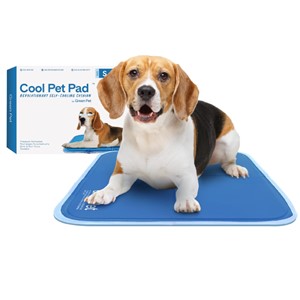
The Green Pet Shop Cooling Mat
Price At Time of Publish $40.00
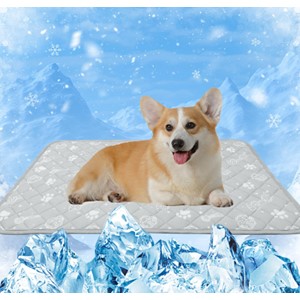
MH MYLUNE HOME Self Cooling Mat
Price At Time of Publish $40.00
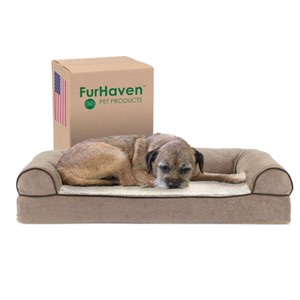
Furhaven Pet Products Cooling Gel Bolsters Small Bed
Price At Time of Publish $45.00
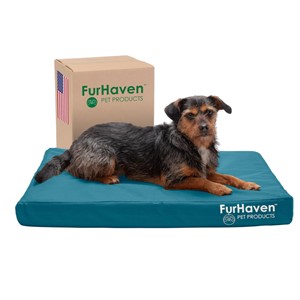
Furhaven Cooling Gel Medium Bed
Price At Time of Publish $42.00

ARF Pets Cooling Gel Pad
Price At Time of Publish $35.00
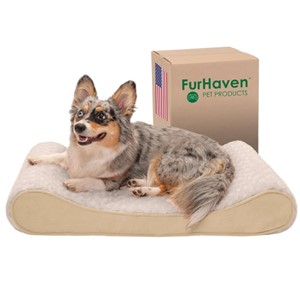
Furhaven Cooling Gel Small Bed
Price At Time of Publish $50.00
Price At Time of Publish $50.00
Orthopedic Dog Beds
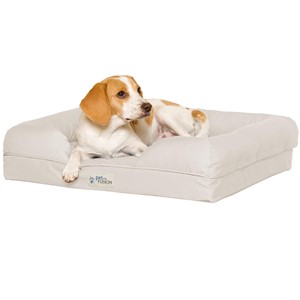
PetFusion Orthopedic Dod Bed
Price At Time of Publish $80.00
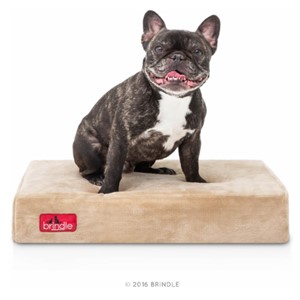
Brindle Orthopedic Bed Khaki
Price At Time of Publish $30.00
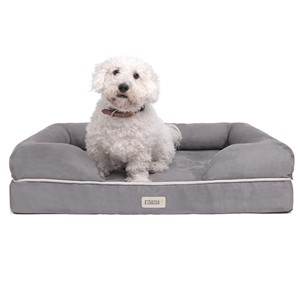
Friends Forever Orthopedic Bolster Bed
Price At Time of Publish $53.00
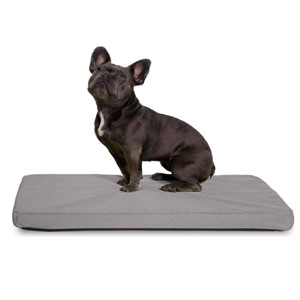
K9 Ballistics Tough Orthopedic Small Crate Bed
Price At Time of Publish $89.00
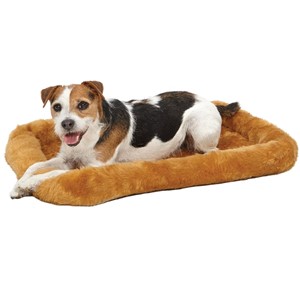
MidWest Homes Small Bolster Dog Bed
Price At Time of Publish $10.00
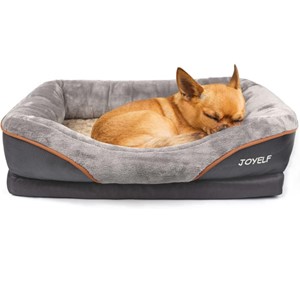
JOYELF Orthopedic Small Sofa Bed
Price At Time of Publish $40.00
Bolster Dog Beds
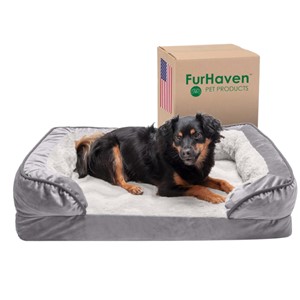
Furhaven Small-Medium Bolster Dog Bed
Price At Time of Publish $57.00
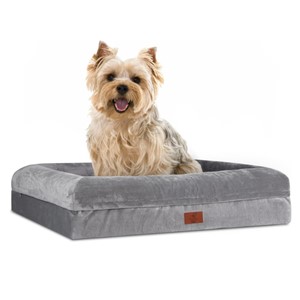
Yiruka Small Bolster Sofa Dog Bed
Price At Time of Publish $40.00
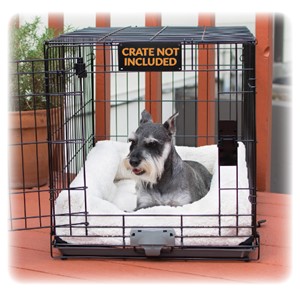
K&H Pet Products Bolster Crate Pad
Price At Time of Publish $22.00
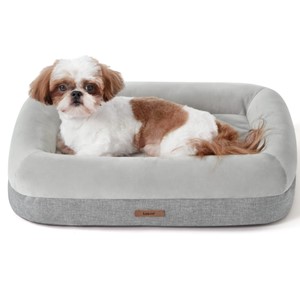
Leasure Small Bolster Dog Bed
Price At Time of Publish $40.00
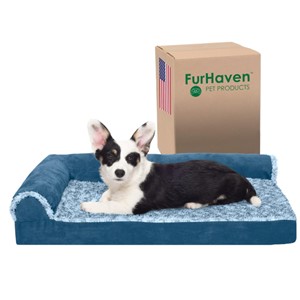
Furhaven Small-Medium L-Shaped Bed
Price At Time of Publish $39.00
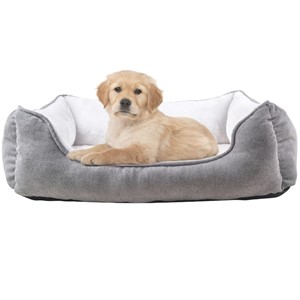
Long Rich Bolster Small Bed
Price At Time of Publish $27.00
Elevated Dog Beds
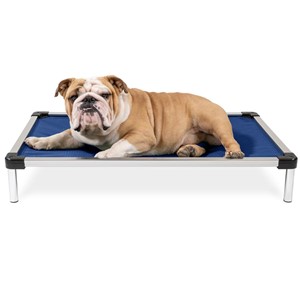
K9 Ballistics Chew Proof Elevated Small Bed
Price At Time of Publish $129.00
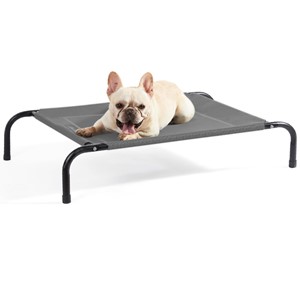
Bedsure Medium Elevated Dog Bed
Price At Time of Publish $33.00
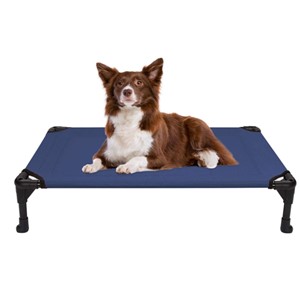
Veehoo Medium Elevated Dog Bed
Price At Time of Publish $45.00
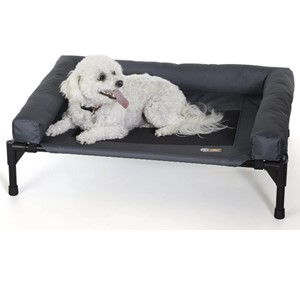
K&H Pet Products Elevated Bolster Dog Bed
Price At Time of Publish $57.00
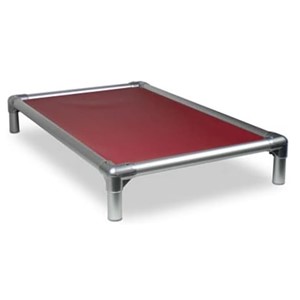
Kuranda Elevated Chew Proof Small Dog Bed
Price At Time of Publish $134.00
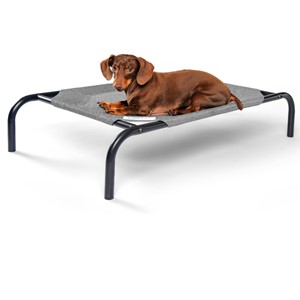
Coolaroo Small Elevated Dog Bed
Price At Time of Publish $21.00
Shop Cave/Donut Dog Beds
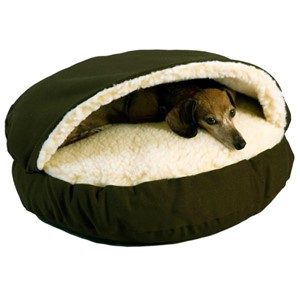
Snoozer Cozy Cave Bed
Price At Time of Publish $87.00
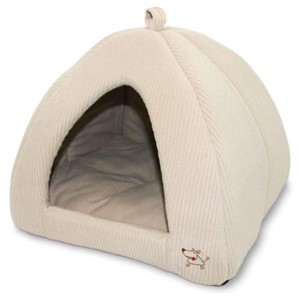
Best Pet Supplies Tent Bed
Price At Time of Publish $23.00
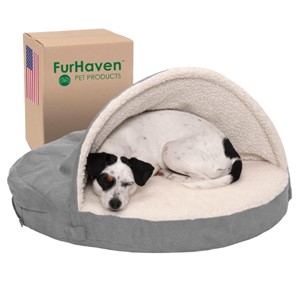
Furhaven Round Orthopedic Cave Bed
Price At Time of Publish $30.00
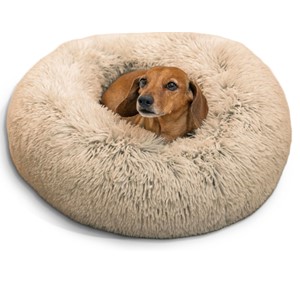
Best Friends by Sheri Original Calming Donut Bed
Price At Time of Publish $25.00
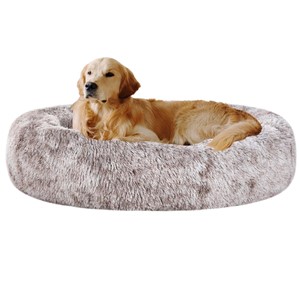
Coohom Oval Calming Donut Cuddler Bed
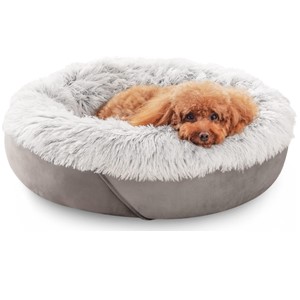
JOEJOY Calming Donut Small Dog Bed
Price At Time of Publish $33.00
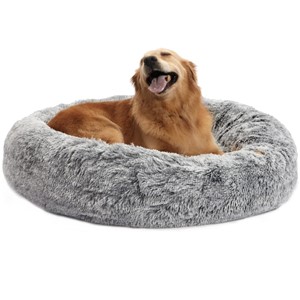
Bedfolks Calming Donut Dog Bed
Price At Time of Publish $66.00
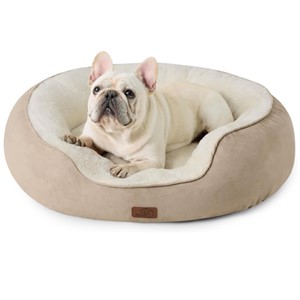
Bedsure Medium Donut Dog Bed
Price At Time of Publish $36.00

Bedsure Medium Donut Dog Bed
Price At Time of Publish $40.00
Related Articles
Below are some articles that may be of interest to you. Just select or click on the topic you want to learn more about.
- Best Dog Training Toys
- Best Healthy Dog Food Brands
- Dog Training Techniques
- How To Train A Puppy
- Positive Reinforcement for Dog Training
- Puppy Proofing Your House
- Using Alexa for Dog Behaviors
Go back to the Dog Luxury Beds home page.

